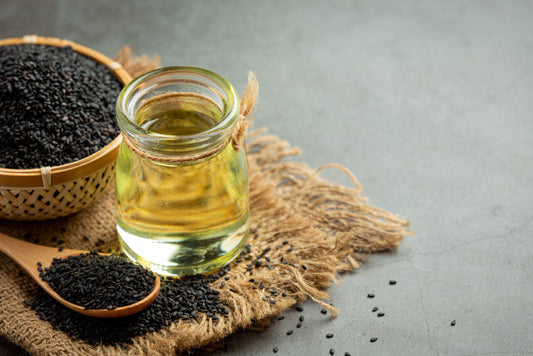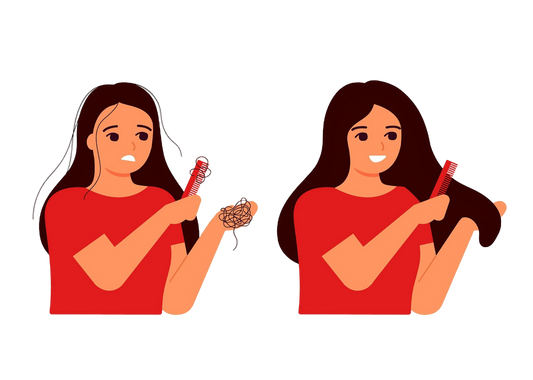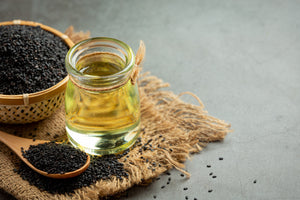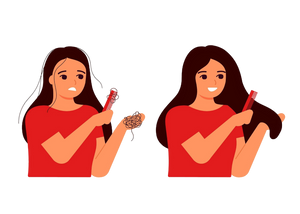Articles
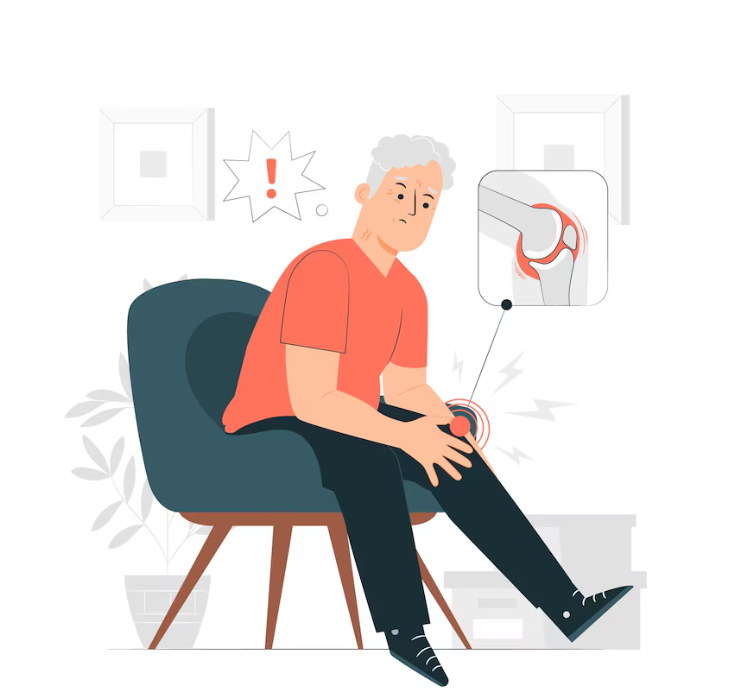
Skin Care
What is Joint & Nerve Pain and How to Manage it Effectively?
Joint and nerve pain can significantly affect one’s quality of life, often making simple tasks seem difficult or even unbearable. Whether it’s chronic discomfort, sudden sharp pain, or an ache that flares up in cold weather, managing joint and nerve pain is crucial to maintaining a healthy and active lifestyle. In this blog, we’ll dive into the causes of joint and nerve pain, the differences between the two, and how you can manage and relieve these pains effectively. Explore Modern ayurvedic remedies to help alleviate joint and nerve pain naturally.
What is Nerve Pain?
Nerve pain, also known as neuropathic pain, occurs when there is damage or dysfunction in the nervous system. This type of pain is different from the usual pain you may feel due to an injury or strain because it stems from issues with the nerves themselves. Nerve pain is often described as sharp, burning, tingling, or electric-shock-like sensations, and it can occur due to a variety of reasons, such as diabetes, shingles, injuries, or nerve compression.
Common symptoms of nerve pain include:
- Shooting or burning pain in the affected area
- Tingling or numbness in your hands, feet, or other areas
- Increased sensitivity to touch
- Weakness or lack of coordination
Nerve pain can range from mild discomfort to severe pain that interferes with daily activities. It is important to address this type of pain early, as untreated nerve pain can become chronic and more difficult to manage over time.
What is Joint Pain?
Joint pain refers to discomfort, pain, or inflammation arising from any part of a joint — the point where two bones meet. Joint pain can be caused by injury, arthritis, inflammation, or other medical conditions. It is a common complaint, especially among older adults, and can affect any joint in the body, such as the knees, shoulders, wrists, or hips.
Common symptoms of joint pain include:
- Aching or discomfort in one or more joints
- Swelling and tenderness around the joint
- Stiffness and decreased range of motion
- Redness or warmth in the affected area
Joint pain can be chronic, as seen in conditions like arthritis, or it can be temporary, resulting from an injury or strain. Managing joint pain effectively is essential for maintaining mobility and quality of life.
How to Manage Nerve Pain?
Effectively managing nerve pain requires a combination of approaches, as there isn’t a one-size-fits-all solution. Below are some strategies that can help alleviate nerve pain and improve your overall well-being:
1. Topical Treatments
Using herbal oils and creams to massage the affected area can provide relief from nerve pain. One highly effective solution is the use of Ortho CP Massage Oil from Avimee Herbal. This oil is designed specifically to target nerve and joint pain, offering a natural remedy to soothe discomfort.
2. Over-the-Counter Medications
Non-prescription medications such as pain relievers, anti-inflammatory drugs, and topical creams can help reduce nerve pain symptoms. However, it is important to consult a healthcare professional before starting any medication regimen to ensure it’s safe for you.
3. Regular Exercise
Physical activity helps improve blood circulation and promotes nerve healing. Low-impact exercises like walking, swimming, or yoga can be effective in managing nerve pain. Exercise also helps prevent muscle stiffness and weakness, which are common side effects of chronic pain.
4. Physiotherapy
Physical therapy is another excellent option for managing nerve pain. A trained physiotherapist can recommend specific exercises and stretches that can help alleviate pain, improve flexibility, and restore function.
5. Manage Stress
Stress can exacerbate nerve pain, making it more difficult to manage. Engaging in stress-relieving activities like meditation, deep breathing exercises, or hobbies you enjoy can help lower your stress levels and reduce the intensity of nerve pain.
How to Manage Joint Pain?
Joint pain management involves both preventive measures and therapeutic treatments. If joint pain is not addressed early, it can lead to decreased mobility and a lower quality of life. Here’s how to manage joint pain effectively:
1. Massage with Ortho CP Massage Oil
For a more natural approach to managing joint pain, using Ortho CP Massage Oil can be highly effective. This oil from Avimee Herbal is formulated specifically for both nerve and joint pain relief oil, making it an ideal choice for addressing joint discomfort.
2. Stay Active
While it might seem counterintuitive, staying active can help alleviate joint pain. Regular movement helps keep the joints flexible and maintains muscle strength around them. However, avoid high-impact activities like running or jumping that can exacerbate joint pain. Instead, opt for low-impact exercises such as swimming, cycling, or walking.
3. Maintain a Healthy Weight
Carrying extra weight puts additional stress on your joints, particularly in weight-bearing areas like the knees and hips. Maintaining a healthy weight can help relieve joint pain by reducing the pressure on these areas.
4. Use Joint-Specific Supplements
Joint supplements that contain ingredients like glucosamine, chondroitin, and omega-3 fatty acids can help reduce inflammation and pain in the joints. These supplements work by promoting joint lubrication and reducing cartilage breakdown.
5. Apply Heat and Cold Therapy
Alternating between hot and cold compresses can provide relief from joint pain. Heat helps relax muscles and increases blood flow, while cold therapy reduces inflammation and numbs the pain.
How to Manage Joint Pain During Winter?
Winter months often exacerbate joint pain, as cold temperatures can cause muscles to contract and joints to become stiffer. Managing joint pain during winter requires some additional care and attention. Here are some tips to help you manage joint pain during the colder months:
1. Keep Warm
Cold weather can worsen joint pain, so it’s crucial to keep your joints warm during the winter. Wear layers of clothing, especially on the areas that are prone to pain, like your knees, elbows, and hands. Consider using heating pads or taking warm baths to help soothe stiff joints.
2. Massage Regularly
Massaging your joints with warming oils can help improve blood circulation and reduce stiffness. The Ortho CP Massage Oil from Avimee Herbal is excellent for this purpose. Regular massage with this oil can help alleviate joint pain and improve mobility.
3. Stay Active Indoors
Even though it’s cold outside, staying active is essential for joint health. Engage in indoor exercises like yoga, stretching, or light strength training to keep your joints flexible and mobile.
4. Hydrate Well
Dehydration can worsen joint pain, especially during winter when we tend to drink less water. Make sure you’re drinking enough fluids throughout the day to keep your joints lubricated.
Ortho CP Massage Oil: A Natural Solution for Joint & Nerve Pain
One of the most effective ways to manage both joint and nerve pain is by using Ortho CP Massage Oil from Avimee Herbal. This oil is specifically designed to relieve discomfort associated with joint and nerve pain, offering a natural remedy that promotes long-term healing.
Benefits of Ortho CP Massage Oil:
- Relieves pain: The oil is formulated to alleviate nerve pain and joint pain naturally.
- Improves circulation: Regular massage with the oil enhances blood flow to the affected areas, which helps reduce stiffness and inflammation.
- Nourishes the skin: The oil hydrates the skin, which is especially beneficial during the winter months when the skin tends to become dry and irritated.
How to Use Ortho CP Massage Oil
- Warm the oil slightly before applying it to the affected area.
- Gently massage the oil into your skin using circular motions. Focus on the areas where you experience the most pain or discomfort.
- For best results, use the oil twice a day, in the morning and evening.
Conclusion
Both joint and nerve pain can be debilitating, but with the right management techniques, you can effectively control the pain and continue living an active life. By using remedies like the Ortho CP Massage Oil, staying active, and maintaining a healthy lifestyle, you can alleviate pain and discomfort, especially during the colder winter months.
Remember that pain management is a journey, and it’s important to explore the solutions that work best for your body and your specific pain conditions. Whether you are dealing with chronic nerve pain or seasonal joint pain, a consistent care routine can go a long way in helping you feel better and maintain a higher quality of life.

 Doctor Consultation
Doctor Consultation


